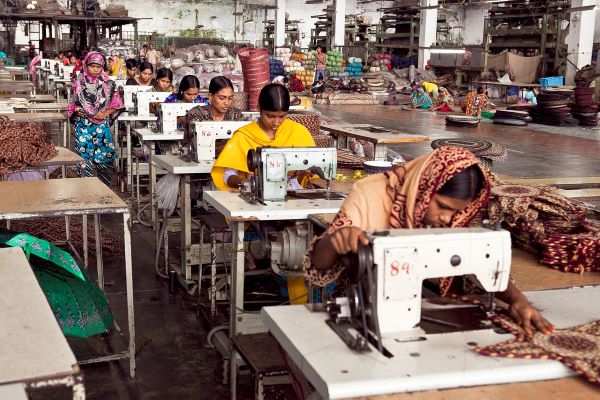UNREASONABLE DEMANDS FROM GLOBAL EXPORTERS AFFECT BANGLADESH RMG MAKERS

UNREASONABLE DEMANDS FROM GLOBAL EXPORTERS AFFECT BANGLADESH RMG MAKERS
Things do get worse before they get better and the Bangladesh RMG segment is counting on that as their current profit margins sink deeper with international clothing brands demanding further discounts to place orders from their local apparel retailers. Global big and small clothing brands are now demanding up to 5 per cent more discount from Bangladesh’s apparel exporters, without caring it may be the last straw on the camel’s back in an economy already under pressure with constant natural disasters, political turmoil and a volatile global economic scenario.
During Covid years, Bangladesh had to tackle unsold inventory and face order cancellation from global brands citing logistics problems in transportation and an uncertain demand-supply in their respective countries to pay up and take delivery.
Manufacturers need profit margins over 20% to stay afloat
Just when things were finally shaping up in post-pandemic days, this jolt comes after local suppliers spent billions of dollars to strengthen workplace safety in line with the recommendations of Accord and Alliance, the two factory inspection agencies backed by global buyers and government unions to improve factory labor standards.
To highlight these issues, a recent business event was organized by The Her Net Foundation in Dhaka. Abdullah Al Mamun, VP, Bangladesh Textile Mills Association pointed out the Bangladesh apparel segment was getting one of the lowest prices globally from international buyers. This despite paying higher taxes for utility bills like gas, water and electricity, a big portion of the costs in RMG factories and spending heavily to have globally approved safe and hygienic factories.
The event called upon global retailers and brands to show more concern and ethical buying prices from local manufacturers who are already hitting poverty levels due to the lower prices and sometimes even selling below their production costs just to retain these global orders for the future. Mohammad Hatem, Executive President, Bangladesh Knitwear Manufacturers and Exporters Association points out, under the current cost of production situation, local manufacturers need a profit margin of 20 to 25 per cent instead of the current 10-15 per cent for manufacturers to pay living wages. However, profit goes slump down to 2 per cent if the gross profit stands at 10-15 per cen.
Bangladesh second only to China in apparel exports
With all this efforts, Bangladesh has managed to retain second position in apparel shipments to the EU in Jan-Feb 2023 with a 22.75 per cent share of the trade bloc's overall garment imports, after China. EUROSTAT stats show, the EU's overall apparel imports for January and February declined $322 million, or 2.03 per cent compared to the corresponding period in 2022. However, in contrast, its apparel imports from Bangladesh increased 5.47 per cent year-on-year, or $183 million, during the Jan-Feb period. Apparel imports from China had already fallen by 13.11 per cent year-on-year to $4.08 billion at this time with shipments from China having decreased 16.42 per cent or 32 million kgs.
However, the fact that Bangladesh has been performing relatively better than other global competitors in this period is not that it has suddenly become the most-preferred destination but more to do with the inflated raw material prices and subsequent hikes in the production cost as the value of goods exported rose although overall volume fell.
With global apparel trade scenario currently low-key, the cash-rich EU market has also been greatly affected. Local manufacturers in Bangladesh need to focus on alternative global markets while reducing dependence on single markets or products and ensure balanced investment plans for now and the near future to keep the country’s economy from falling further.
By Fashionating World
https://www.fashionatingworld.com/new1-2/unreasonable-demands-from-global-exporters-affect-bangladesh-rmg-makers
